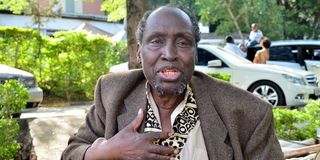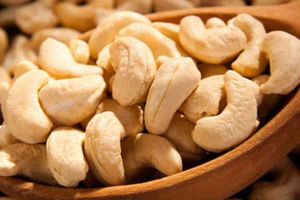Ngugi should have spoken in Kiswahili when taking prize

What you need to know:
True to his word, since the late 1980s or thereabouts, Ngugi has been writing most of his creative works in Gikuyu and later getting the works translated into English by himself or being translated into Kiswahili by other people. I find this to be a contradiction in Ngugi’s ideology.
Immediately after Kenya’s foremost writer, scholar, translator and essayist – Ngugi wa Thiong’o - gave an acceptance speech (in Gikuyu), after being honoured as the 31st recipient of the Catalonia International Prize, for his daring and distinguished literary work and defence of African languages on Thursday, his son, Dr Mukoma wa Ngugi tweeted: “Baba just gave his International Catalonia Lit Prize acceptance speech in Gikuyu! And before the anti-African language corner says anything, would you complain if he had accepted it in German, Dutch, French or English? Congrats again @NgugiWaThiongo…”
In his collection of essays, Decolonizing the Mind: The Politics of Language in African Literature, (James Carrey), Ngugi states: “This book, Decolonizing the Mind, is my farewell to English as a vehicle for any of my writings. From now on, it is Gikuyu and Kiswahili all the way.”
True to his word, since the late 1980s or thereabouts, Ngugi has been writing most of his creative works in Gikuyu and later getting the works translated into English by himself or being translated into Kiswahili by other people. I find this to be a contradiction in Ngugi’s ideology.
In his deliberate decision to write a literary work in Gikuyu and then translate the work (himself) into English, he is basically rewriting the work anew. It is also very difficult to establish whether Ngugi really writes first in Gikuyu, then translates the work into English or vice-versa.
Translated work
Ngugi is alive to the fact that a translated work is not the same as the ‘original’ work. In his plenary address at the First Africa International Translation conference, held in Nairobi on February 8, 2019 – titled ‘Translation, Restoration and Global Culture’, Ngugi observed: “In so many ways, a translation is really a new work, a work of art. What comes out of it is really a work which is not quite identical with the original. It is a new work.”
From Ngugi’s acknowledgement about the theoretical and practical aspects of the translation mechanisms and processes, it can be argued that his first ever novel in Gikuyu – Caitani Mutharabaini, published in English under the title Devil on the Cross, and Murogi wa Kagogo, translated into English as Wizard of the Crow, are not identical works. We, therefore, can’t easily draw the dichotomy between Ngugi – the writer of Murogi wa Kagogo, and the same writer as the translator of the same work into English under the title Wizard of the Crow. These being ‘different works’ — at least going by the theories and practices of translation, could it be possible that Wizard of the Crow was written directly into English – without ‘going through’ Gikuyu? If yes, then Ngugi’s ideology of writing in Gikuyu and translating into English is just semantics issue.
Literary critics have observed that with the death of Marxism throughout eastern Europe and the former Soviet Union, and Ngugi’s own pronouncement in the West, many readers of African literature have been wondering about the direction in which the writer has taken the political passions which have dominated his writings for very many decades.
Ngugi’s embrace of Gikuyu as his chosen medium of literary expression no doubt marked a turning point in his career. Although critics initially took his deliberate decision to defend African languages in general, and Gikuyu in particular – as a romantic gesture that would be difficult to sustain, Ngugi’s action to address the global audience in Gikuyu – can be interpreted as a desperate move to sustain his ideology.
In any case, Ngugi admits in the preface to Moving the Centre: The Struggle for Cultural Freedoms (James Currey, 1993) that the obstacle to the use of African Languages by African writers are overwhelming.
Therefore, to address Mukoma wa Ngugi’s concerns – not as a resident of the anti African languages corner but a believer in ‘improving’ his father’s ideology, Prof Ngugi wa Thiong’o would have made a stronger statement if he gave his Catalonia Lit acceptance speech in Kiswahili.
Here is why. One, Kiswahili has been touted as the possible candidate in becoming the lingua franca of the African continent – by none other than the likes of Chinua Achebe and Wole Soyinka. The duo are on record, to have taken a contrary position with Ngugi's ideology on the language of African literature.
Achebe for example, argues that it is possible to fashion out an English which is at once universal and able to carry the African’s peculiar experience. This is largely depicted in his novel Things Fall Apart (1958), which captures the Igbo culture and idiom in a very fascinating way.
Kiswahili scholars such as Akunga Nyangeeri are of the view that, Ngugi should have chosen a trans-cultural African language (such as Kiswahili) that advances his ideology beyond Central Kenya.
Two, Kiswahili is a global language now, and can be classified in the same league as German, French and English.
Two, by using Kiswahili, Ngugi would not have gone against his promise in Decolonizing the Mind: “From now on, it is Gikuyu and Kiswahili all the way.”
Enock Matundura, translator of Barbara Kimenye’s Moses series (Oxford University Press), teaches Kiswahili Literature at Chuka University. [email protected]





